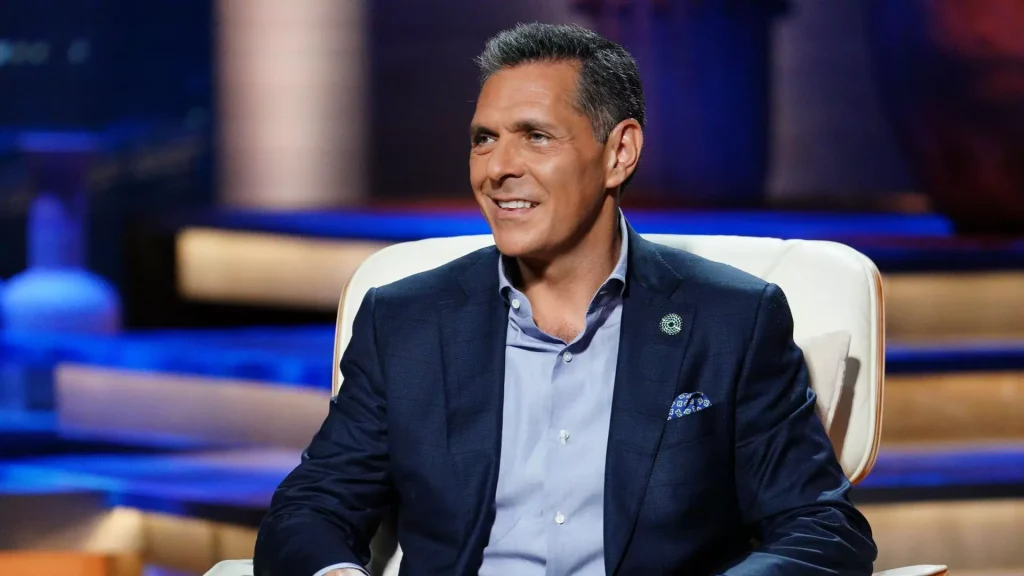Daniel Lubetzky, the visionary behind Kind Snacks, has redefined not just the snack industry but also the very essence of wealth-building through entrepreneurship. With Kind, Lubetzky didn’t just create a brand; he built a lifestyle—a nutritious alternative to unhealthy snacks that resonated with the growing wave of health-conscious consumers. His decision to sell a controlling stake in the company to Mars in 2020 marked the end of an era for Kind. Yet, instead of resting on his laurels, Lubetzky used his newfound resources to expand his horizons through his family office, Camino Partners. This shift highlights an important lesson in financial diversification—a strategy that moves beyond industry silos and embraces opportunities in seemingly unrelated sectors.

A Diversified Investment Philosophy
Lubetzky’s investment strategy is a prime example of how successful entrepreneurs can embrace diversification. His portfolio now spans from snack bars to health services and fitness communities, clearly signaling an understanding that modern consumer needs go beyond just food. Longevity investments—a focus of Camino Partners—reflect an acknowledgment that consumer health is multifaceted, involving not only nutrition but also physical well-being, education, and lifestyle choices. For Lubetzky, wealth-building is no longer confined to profits alone; it’s about addressing societal challenges and innovating for the common good.
This shift into wellness echoes a broader trend where billionaires, like Lubetzky, are leveraging their wealth to drive social responsibility and foster societal change. While the profit motive is undeniable, his investments in sectors like fitness—including brands like Barry’s, a high-energy fitness chain—demonstrate a dual focus on both profit and purpose. This approach taps into the rising demand for health and longevity, presenting lucrative opportunities for investors willing to embrace innovation while making a lasting impact on society.
The Shift from Startups to Proven Businesses
Lubetzky’s evolving investment strategy marks a distinct transition: moving from nurturing startups to investing in more established businesses generating at least $20 million in revenue. This shift represents a growing pragmatism in his investment approach. Initially inclined to take risks on nascent ventures, Lubetzky has come to recognize the perils of early-stage investments, where failure rates are high. By focusing on proven businesses, Lubetzky reduces risk while still tapping into growth opportunities.
This change in strategy speaks volumes about his personal growth as an investor and his deepened understanding of market dynamics. The decision to raise investment thresholds demonstrates a mature, calculated approach to wealth-building—one that balances financial acumen with risk mitigation. This shift raises an important question: Has the essence of entrepreneurship been diluted by an overemphasis on metrics? Are investors now more concerned with numbers than the innovative drive that fuels them?
Collaborating with Experts
An essential aspect of Lubetzky’s investment success lies in his ability to collaborate with experts. While his background in food and wellness is strong, Lubetzky wisely partners with fund managers who possess specialized knowledge in fields like aerospace and technology. This collaboration not only expands his investment horizons but also reduces risks by leveraging external expertise. It’s an underappreciated lesson for emerging investors: collaboration over isolation. The best investors are those who know when to partner with others, tapping into a diverse pool of knowledge to innovate and succeed.
Embracing Change for Sustainable Wealth-Building
Lubetzky’s journey serves as an important call to action for future investors. His dynamic approach to entrepreneurship and wealth-building teaches that success is about more than just numbers. It’s about making a difference—whether through healthier products, socially responsible investments, or a broader understanding of consumer needs. In today’s fast-changing world, embracing change and collaboration can lead to sustainable wealth-building strategies.

Lubetzky’s story challenges us to rethink the ethics of investment. Fortune can and should be wielded responsibly—blurring the lines between compassion and commerce, entrepreneurship and social good. As consumers increasingly prioritize health, wellness, and sustainability, entrepreneurs like Lubetzky offer a model for how to build wealth while simultaneously improving society. His journey reminds us that wealth creation is not just about profits but about fostering innovation and addressing pressing societal challenges.




